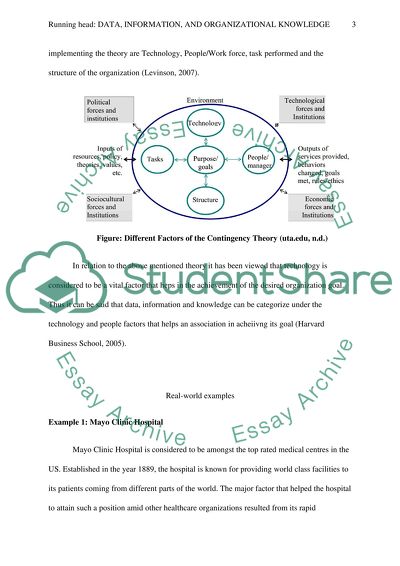Data, information, and Organizational knowledge Essay - 1. Retrieved from https://studentshare.org/health-sciences-medicine/1484731-data-information-and-organizational-knowledge
Data, Information, and Organizational Knowledge Essay - 1. https://studentshare.org/health-sciences-medicine/1484731-data-information-and-organizational-knowledge.


